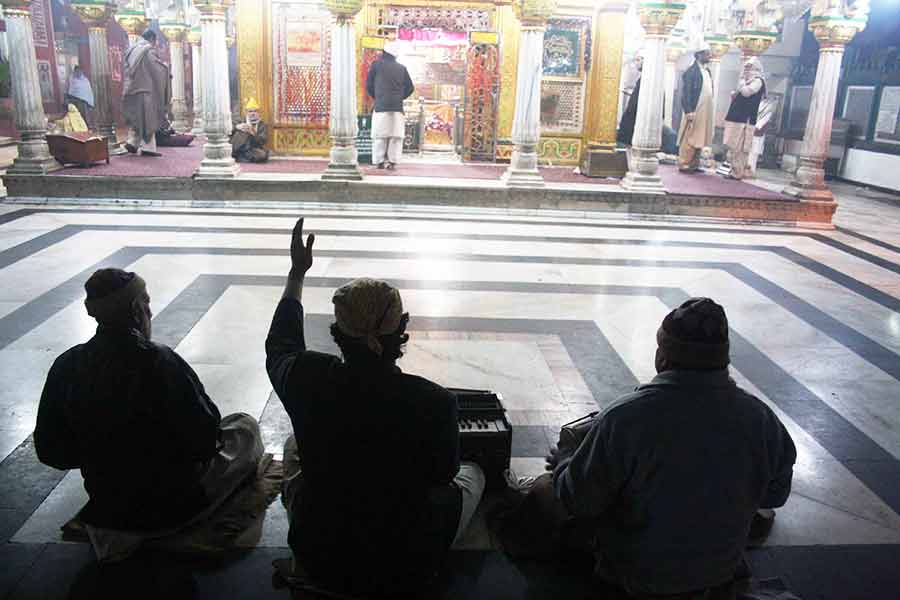Hazrat Khwaja Nizamuddin Auliya Dargah Delhi
Hazrat Shaikh Khwaja Syed Muhammad Nizamuddin Auliya was the fourth Spiritual Successor (Khalifa) of Hazrat Khwaja Moinuddin Chishti of Ajmer — the founder of the illustrious Order of Chishti saints in this country. He was specially selected by his Pir-o-Murshid Hazrat Khwaja Fariduddin Ganjshakar, for this onerous responsibility because of his unique merits as a learned scholar, an able and diligent administrator and a perfect Spiritual Master, on the recommendation of a “basharat” (revelation) from the Holy Prophet ﷺ.
After the demise of Hazrat Baba Fariduddin Ganjshakar, Hazrat Khwaja Nizamuddin Aulia, therefore, succeeded him as the fourth Sajjadanashin (highest spiritual leader) of India; Hazrat Allauddin Ali Ahmed Sabir of Kalyar being the third in the order of precedence.

Every Thursday evening, the dargah rings with the sound of Khusrau’s qawwalis, sung by Sufi devotional singers. This is also one of Delhi’s best cultural experiences. The neighbouring basti is dotted with eateries and other monuments, such as famed poet Mirza Ghalib’s mausoleum; Barakhamba, a 16th-century Lodi monument with 12 pillars; and the Chausanth Khamba, a 17th-century white marble hall with 64 pillars and several tombs.
Hazrat Nizamuddin also entertained overwhelming love for Prophet Mohammad ﷺ. Some time before his death, he saw the prophet ﷺ in a spiritual communion who said: “Nizam, I am very eager to meet you.” Ever since that day, Hazrat Nizamuddin remained in a state of eagerness looking forward to the last journey of his life. Forty days before his death, he gave up all food and if anyone asked him to take it, he said: “How can one relish any food when one is fond of meeting the Prophet ﷺ?”
When his condition became alarming and he was requested to take some medicine, he quoted Amir Khusro’s following verse:
| “ | Dardmand-e-Ishy raa daru bajuz didaar naist. | ” |
| “ | To the victim of Divine Love, there is no other remedy except meeting his ‘beloved’ (God). | ” |
Love for the poor
A day before his death, he ordered his personal attendant Iqbal to distribute all that was in his Langarkhana and storeroom to the poor so that “he may not have to give an account of the same before God.” One of the servants had kept back some foodgrains for the inmates of the Khanqah but, when the saint heard of it, he ordered: “Please, let the poor have everything and you should sweep the floors of my ‘Toshakhana’ (storeroom).” This order was strictly carried out.
Just before his death on the morning of 18th Rabi-us-Sani, 725 A.H., he distributed from his private Bughcha (an attache case) miscellaneous presents to his various Khalifas and ordered them to go out to all corners of India to preach the gospel of Truth and Love.
Handing over the traditional “Tabarrukaat- e-Mustafavi” (sacred relics) which he had received from his Pir-o-Murshid, and which were coming down with the successors in the Chishtia Order for the past 600 years) to Hazrat Khwaja Nasiruddin Chiragh of Delhi, he said:
| “ | Shuma dar Dilli bayad booa wa jafa-e-mardum bayad kasheed. | ” |
| “ | You must stay in Delhi and suffer the persecution of the people. | ” |
